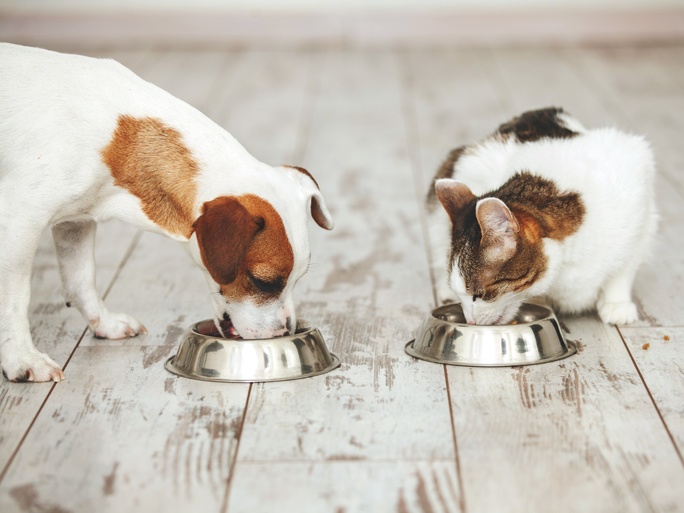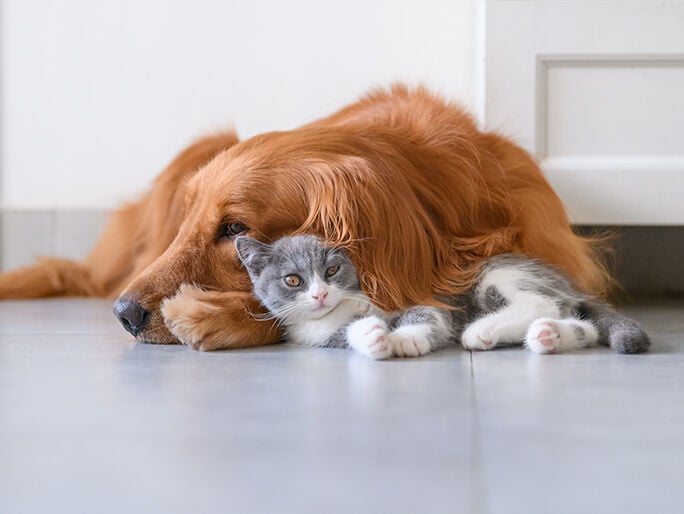help for pet poisoning
Poison can be life-threatening. If you suspect your cat or dog has ingested a toxin or you see symptoms of poisoning, don’t wait — contact your local pet emergency hospital immediately.
Seek immediate emergency veterinary care if you suspect your pet has ingested a toxin or you see symptoms of poisoning, which can appear hours or even days after ingesting a toxic substance. The Pet Poison Helpline at 1-800-213-6680 can help with additional steps on the way to the emergency vet (fee applies).
Signs of poisoning in pets

Coughing,
hacking

Unusual amounts of slobber, drool,
or foaming at the mouth

Labored breathing,
low energy, lethargy

Dilated pupils,
blindness

Seizures, tremors

Difficulty walking
(they may look drunk)

Vomiting, diarrhea, loss of appetite

Loss of bladder control
Poisons can be life-threatening to pets even in small amounts
If you suspect your pet has been poisoned, stay calm and seek immediate veterinary care to best help your pet.
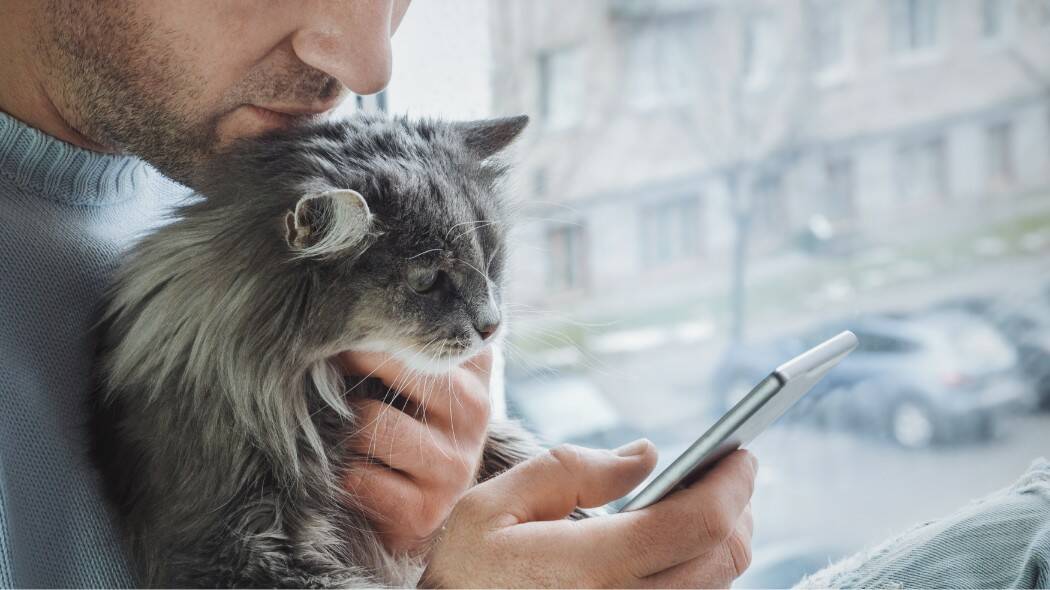
Don’t induce vomiting or use a home remedy to buffer poisons
Never induce vomiting in your pet or give any kind of human medications to pets without explicit veterinary instructions. Many home “cures” can actually make matters worse.
- Inducing vomiting can cause more damage to your pet
Vomiting caustic poisons can cause additional harm and be actively dangerous for your pet. If it’s necessary, your veterinary team will let you know what to use and how to use it.
- Avoid common home remedies — they can make matters worse
Don’t try human staples like milk, peanut butter, vegetable oil, or salt. None of these foods will buffer or neutralize poisons, and oil and salt can be actively harmful to your pet.
Remove poisonous materials and collect vomit as directed for testing
Safely remove any remaining poisonous materials from your pet’s reach. If you can, use a clean plastic bag to collect vomit, which the veterinary team may need for evaluation.
Make note of:
- Your pet’s symptoms
- What they ate
- When they ate it
- How much they ate (number of tablets, tablet strength, etc.)
- Bring or take a photo of the product ingested for reference
Get to pet emergency care and contact the Pet Poison Helpline
Call your local emergency veterinary hospital to let them know you are on your way. Follow all instructions to help your pet.
On your way to emergency veterinary care, call the Pet Poison Helpline. For an incident fee, they can supply initial information on how to help dogs, cats, puppies, kittens, birds, small mammals, large animals, and exotic species. (If you don’t call, the vet team who treats your pet will likely call on their own and charge the same fee.)
Give your veterinary team any information you’ve collected on the type and amount of poisonous material that may be affecting your pet. You may also need to provide your pet’s current weight and their known medical history, including medications, prescriptions, or supplements. Make sure to write down the case number the helpline gives you — it may come in handy at the ER.
Emergency care at veterinary clinics can help poisoned cats and dogs
Different kinds of poisons require different kinds of emergency veterinary care. If your pet has been poisoned, your emergency veterinary team will evaluate the type, amount, and time of poisoning, as well as your pet’s species, age, and size.
Antidotes may be available for specific poisons
Some poisons, like antifreeze and certain rodent poisons, often respond to specific antidotes. That’s why the sooner your pet gets medical attention, the better the outcome typically is.
Gastric decontamination can sometimes buffer poisons
Certain toxins can be buffered by a formula of medically delivered activated charcoal, which works to absorb and neutralize materials in the stomach.
Safe diuretics or emesis can sometimes help to limit damage
Your vet may give your pet fluids to help to dilute poisons and flush them out in their urine or administer certain treatments that may help your pet safely vomit toxins out of their system.
Gastric lavage may wash out toxins
If administered quickly enough, a gastric lavage introduces sterile fluids directly into the stomach, where they can help to wash out toxins.
No emergency vet available?
If you live in a rural area, it’s possible there isn’t an emergency vet nearby. First, do your best to stay calm. Call the Pet Poison Helpline and give them all the details of the situation. There may be a household remedy you can use to assist your pet — but please don’t administer it before speaking with an expert.
You can also use an online vet help tool, such as Pet Chat™. Here, you connect with real veterinary professionals — anytime, anywhere — to help make informed healthcare decisions about your pet.
Mentioned in this article
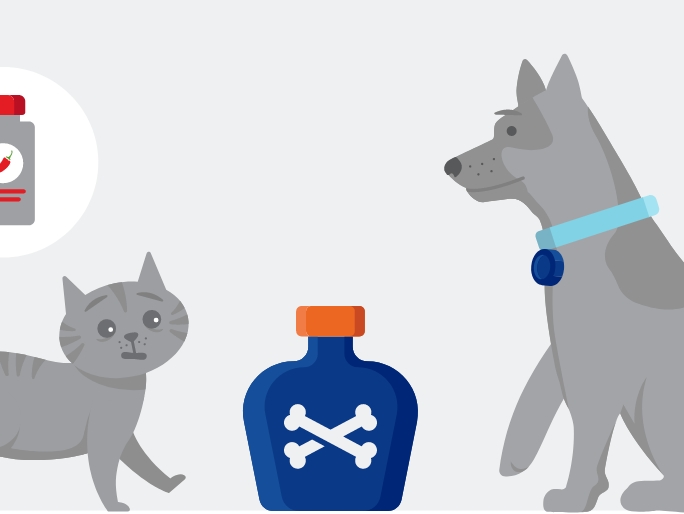
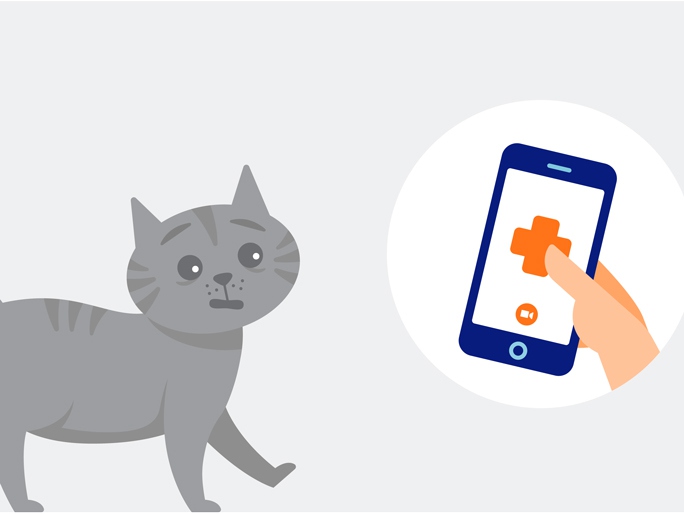
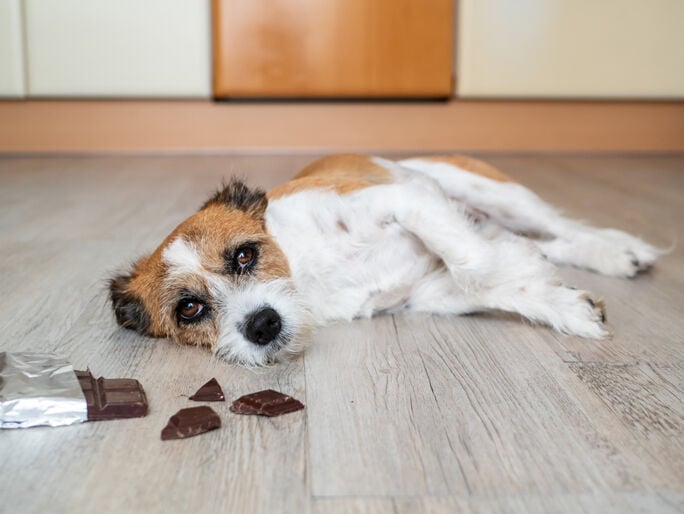

Need advice on flea control? Ping Pet Chat™!
Whether it's 3 a.m. or 3 p.m., connect with a real veterinary professional for immediate petcare advice. It's included in all Optimum Wellness Plans®!
Log in to start chattingHow Banfield can help in a pet emergency
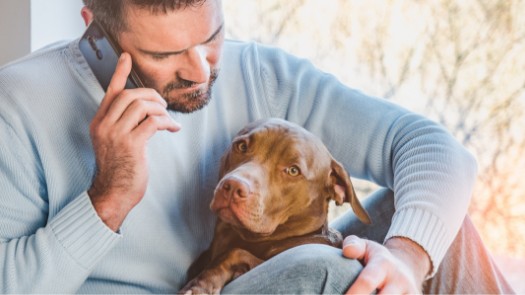
Banfield’s focus is wellness care. In the case of an emergency, call your local veterinary team to see if they have the capacity to see your pet. If not, they may recommend that you go immediately to an emergency hospital.
Costs for urgent care services will depend on location, your pet’s needs, and the services provided. Please speak to your local Banfield veterinary team if you have questions regarding urgent care.
Pet urgent care advice
Call a Banfield near you during hospital hours for advice. Depending on your pet's needs, we can provide a referral for local emergency hospitals or specialty providers. During non-hospital hours, please contact your local veterinary emergency hospital.
Chat with a team member online
All pet Optimum Wellness Plans® come with Pet ChatTM for anytime, anywhere, 24/7 access to live general veterinary advice.
Access pet records in your MyBanfield account
Pet records are available 24/7 in MyBanfield both online and in our app. These include medical records, microchip information, and more. If you lose your records or can't get online, give us a call. A Banfield associate may be able to help you access the information you need.
Want high-quality petcare?
Banfield offers a range of services from comprehensive exams to urgent care advice.
 Mites and mange
Mites and mange Podcast - Not Just Fluff
Podcast - Not Just Fluff


